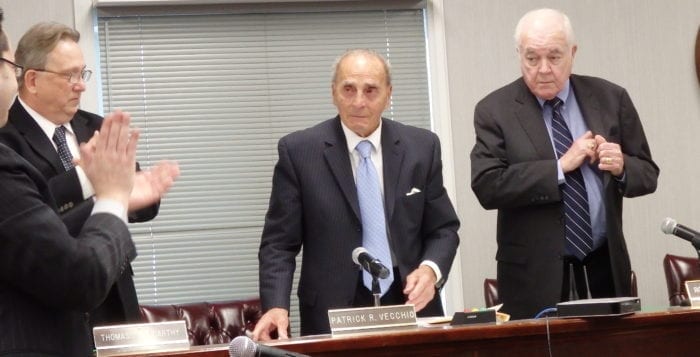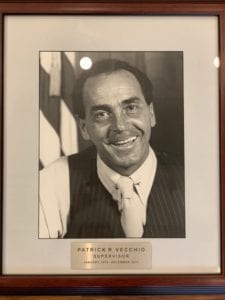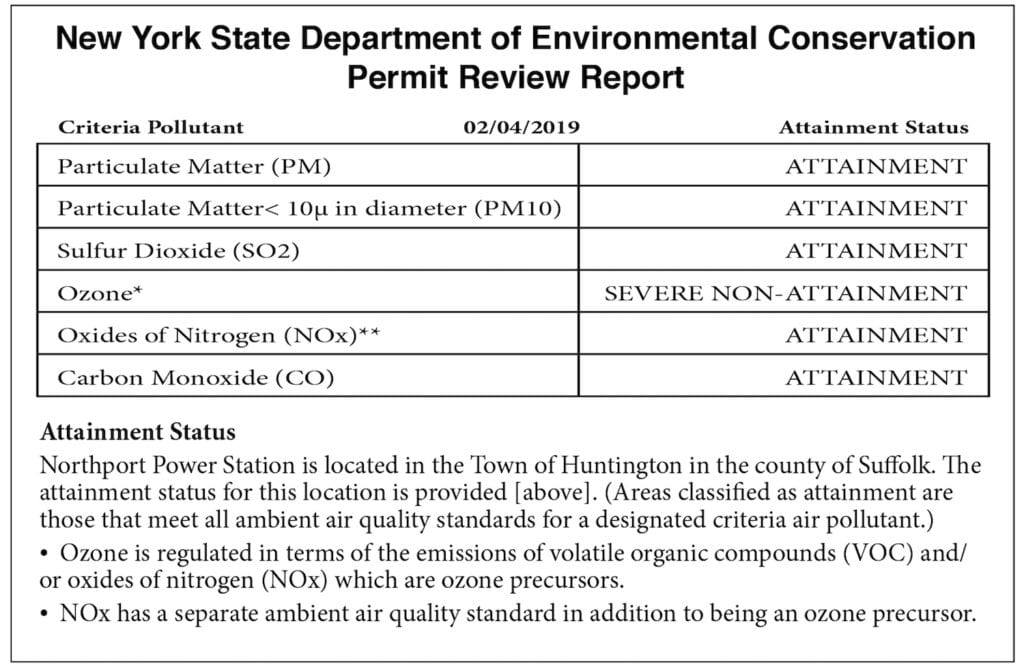A familiar corner in East Setauket may get a permanent makeover.
On May 2, Town of Brookhaven council members and Supervisor Ed Romaine (R) unanimously approved a resolution to allow Suffolk County to begin the process of purchasing land parcels containing the old derelict building that sits across from East Setauket Pond Park on the southeast corner of Gnarled Hollow Road and Route 25A. The county is buying the land under the Suffolk County Drinking Water Protection program.
The resolution also authorizes the town to demolish the buildings on the property and maintain and manage the parcel as an open space passive park.
The passage of the town resolution follows a county resolution introduced by Suffolk County legislator Kara Hahn (D-Setauket) that was approved in March. The county legislators determined the land parcel meets the criteria for acquisition under the drinking water program due to the land containing wetlands. The approval of the county resolution also allows Suffolk to appraise the property for possible purchase. Concrete Condor, LLC and Marine Midland Tinker National Bank are listed as the current owners of the buildings on the site.
Hahn said the spot has been recognized as an eyesore for years and is an environmentally sensitive area due to a stream flowing under the property and into waterways such as Setauket Harbor and East Setauket Pond Park. The building’s basement was known to constantly flood because of this running water.
She said the first step is an appraisal of the land parcel, and then the owner will be made an offer. If the offer is accepted, the county and town can move forward with plans for a passive park. She said the municipalities would also look for community input, and they have already consulted with town historian Barbara Russell to see if there is anything of historical value that needs to be preserved.
“It’s exciting that there is real opportunity there,” Hahn said.
Town councilwoman Valerie Cartright (D-Port Jefferson Station) said in an email the town is committed to preserving open space and creating it when possible.
“In this case, the property on Gnarled Hollow is in an environmentally sensitive wetlands area,” she said. “We think it is important to restore this location to its natural state or as close to natural as possible. This parcel was part of ongoing discussion among the elected officials including myself, [state]Assemblyman [Steve] Englebright, Legislator Hahn and Supervisor Romaine.”
Before the May 2 town council vote, George Hoffman, co-founder of the Setauket Harbor Task Force, spoke in support of the resolution.
“We call it the Chippendale’s building because of the unique architecture on the top,” Hoffman said. “But it’s derelict, and it’s been boarded up now for seven or eight years.”
Hoffman described Setauket Harbor as an impaired waterway, and he said protecting the stream on the land parcel and the wetlands would help with the task force’s work to improve the waterway. He added a passive park also would be ideal in the location because it is located near where Roe Tavern once stood on Route 25A. Historians believe that General George Washington slept in the establishment in 1790 and traveled along the 25A corridor.
“It’s important for us as a community because it’s an eyesore,” he said. “It’s helpful to us in terms of changing the ecology of the harbor, and it’s also important to us because of our historic highway.”
Michael Kaufman, of the Suffolk County Planning Commission and a task force member, said he scaled the fence one day to look at the property and described the wetlands as pristine.
He said the task force has partnered with the town to work in cleaning up and maintaining the park next to Se-Port Delicatessen across the street from the property. New York State Sen. John Flanagan (R-East Northport) secured a $1 million grant from the state for the Town of Brookhaven in 2016 to be used to improve water quality in Setauket Harbor. The grant was also allocated to help clean out the pond slightly west of Se-Port and fix the dock on Shore Road. The contract period began Oct. 1, 2018. Kaufman said the future open space would complement the current park across the street.
“There is a chance to really make something spectacular which we otherwise would not really have there on both sides of the street,” Kaufman said. “There’s an excellent entryway into the area and an excellent exit.”




















